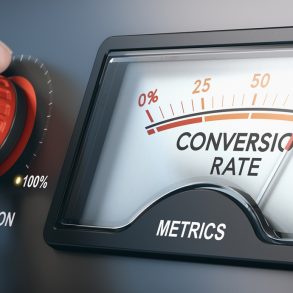Apart from peoples’ desire to front-run mortgage rule changes, nothing drives mortgage volumes like a rate increase, or the threat of one.
5-year fixed mortgage rates jumped 1/4 point last week. Many saw that as their cue to lock in a fixed rate.
 But Moshe Milevsky, author of the most quoted mortgage research in Canada, reminds people in this Moneyville story that short-term rate increases shouldn’t spark panic.
But Moshe Milevsky, author of the most quoted mortgage research in Canada, reminds people in this Moneyville story that short-term rate increases shouldn’t spark panic.
He says, often “the public is urged to act now,” but then “a few months later something unforeseen” happens and rates fall back down.
Milevsky writes that just one year ago rates did the same thing.
Here’s a chart we put together of 5-year bond yields over the last year (government bond yields drive fixed mortgage rates).
(click to enlarge)
Had you got a $200,000 25-year-amortized mortgage in March 2010, just as rates were soaring, you would have paid a healthy premium. Suppose, for instance, that you had chosen the typical 3.94% five-year fixed at the time, and held it to today. Our calculations suggest you would have paid over $2,500 more interest than you would have in a prime – 0.50% variable (which was common at the time). That’s not exactly chump change.
But making a point based on hindsight is narrow-minded. At the time (March 2010), most analysts believed rates were starting a long-term trend higher.
The point is simply this: future rate expectations should not be the primary determinant of your chosen term. (“Future rate potential,” however, is a different matter. You do need to account for where rates might go—so you’re prepared if they do.)
Whatever the case, Milevsky warns not to “rush into home ownership because you are convinced that mortgage rates are headed-up” and that we’ll never see low rates again.
 He then adds something interesting. Despite Milevsky’s research showing that variable rates have historically saved homeowners considerably more money, he says:
He then adds something interesting. Despite Milevsky’s research showing that variable rates have historically saved homeowners considerably more money, he says:
“If you’ve just bought a home and you have a large mortgage, relative to the home’s value, I urge you to lock-in for as long as possible.”
That's quite unequivocal advice from a respected authority, and especially noteworthy given that Milevsky is an academic who doesn’t make public recommendations lightly.
Milevsky says highly leveraged homeowners “are now facing the probable risk that real estate prices decline and interest rates increase.” This, and “the possibility of job loss, disability or other macro factors” make someone with less equity and financial resources “the ideal candidate for a fixed rate mortgage.”
“The last thing you want to be doing is trying to renew your mortgage in a year or two from now, if rates increase and possibly the appraised value of your house has declined by 10 per cent or more.”
Milevsky, on the other hand, says he chose a variable-rate mortgage for his own home “because I can tolerate the risk and want to pay as little as possible for unnecessary insurance.”








Mr.Milevsky is not know to comment or recommend a particular action often as he tends to stick to the research and “science” of interest rates.
Having said that, when he clearly makes a recommendation regarding highly leveraged home owners… they would be well advised to take some heed.
Smart money is to stay with Variable and pay down the principal as quickly as one can with the extra savings in interest.
MK:
It’s tough to make a generalization like that. It depends on the client and on the available rates for other terms.
So, the question then becomes, for people who are currently in a prime-minus VRM, with one or two years to go before renewal: what to do?
Stick with the VRM knowing that it probably will save money in the next two years, but with the high potential of having to renew at higher rates with a lower house value?
Break the mortgage (low penalty b/c it is a VRM, but not totally insignificant either) and renegotiate it now for a 5-year fixed?
Breaking and renegotiating into a 1, 2 or 3 year term is also possible, but leaves you with the same problem of having to renew at higher prices with lower house value — and likely having paid off less in the next year or so than if you had stayed with the VRM.
What is your home worth?
Home much equity do you have?
What is your credit score?
How secure is your job?
What is your payment now?
How much payment can you afford?
How much debt do you have?
What is your penalty?
How much savings/RRSPs do you have?
How high do you see interest rates headed?
As you can see, your question is not straightforward. :)
I don’t mean to speak for this website but you should talk to a mortgage broker and have them do a proper analysis for you.
If you have a variable rate, pay on a bi-weekly basis as if you were paying the higher fixed rate. The difference in your bi-weekly payments will go to principal and you will be making headway on your mortgage amortization before variable interests rise. The savings on cost of borrowing you will be making today with this approach can offset the interts of higher variable rates in the near future.